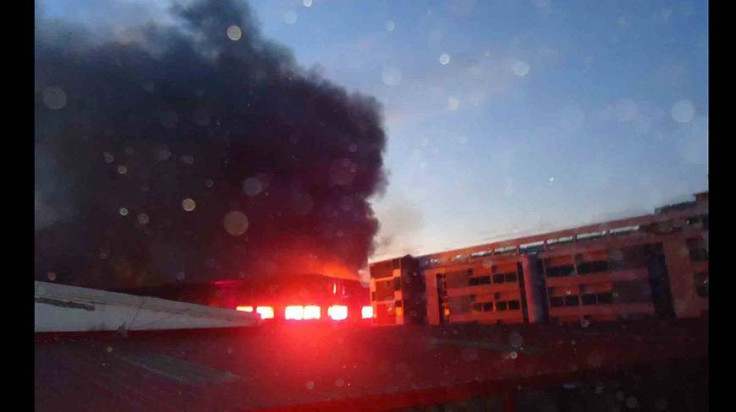New Bangladesh Dhaka Garment Factory Fire Leaves 9 Dead

A new fire at a garment factory outside Bangladesh's capital Dhaka has reportedly killed at least nine people.
The fire broke out in the knitting section of the two-storied Aswad garment factory in Gazipur.
"Eight fire fighting units of Gazipur, Bhaluka, Sreepur and Kaliakoir Fire Service and Civil Defence were trying to douse flames," said the assistant general manager of the factory.
Local journalist Iqbal Ahmed said that the fire occurred at 7pm local time when the factory was closed for the day, but some employees were still inside working overtime.
Witnesses said black fumes spread around the site up to 1km from where the fire broke out.
The latest incident comes just six months after the Rana Plaza factory collapsed in Dhaka, killing 1,133 people.
Families and victims of the Rana Plaza disaster are still waiting for compensation from their employers. Only one company, Primark, has provided compensation to survivors - giving 3300 victims just £115 each.
The Bangladesh government has given £18,000 each to 777 people - around a third of the victims and their family members - but no long-term compensation package has been agreed.
According to some reports, major retailers have agreed there will be no compensation for the victims of either the Rana Plaza collapse, or an earlier fire at the Tazreen Fashions factory in Dhaka, without DNA identification - although Bangladesh does not have computer software to match samples collected from the scene with the victims.
"Some people were burnt completely to ash in the Tazreen fire to the extent that no remnant of the body could be found for DNA match," Liana Foxvog, director of organising and communications at the International Labour Right Forum, told IBTimes UK.
"It is truly saddening that even the limited payments made so far following Tazreen haven't reached the families who were unable to recover a body to prove that their family member was killed in the fire.
"The need for compensation is quite stark: there are survivors who risk losing their homes and who can't get the necessary medical treatment that they need."
© Copyright IBTimes 2025. All rights reserved.





















